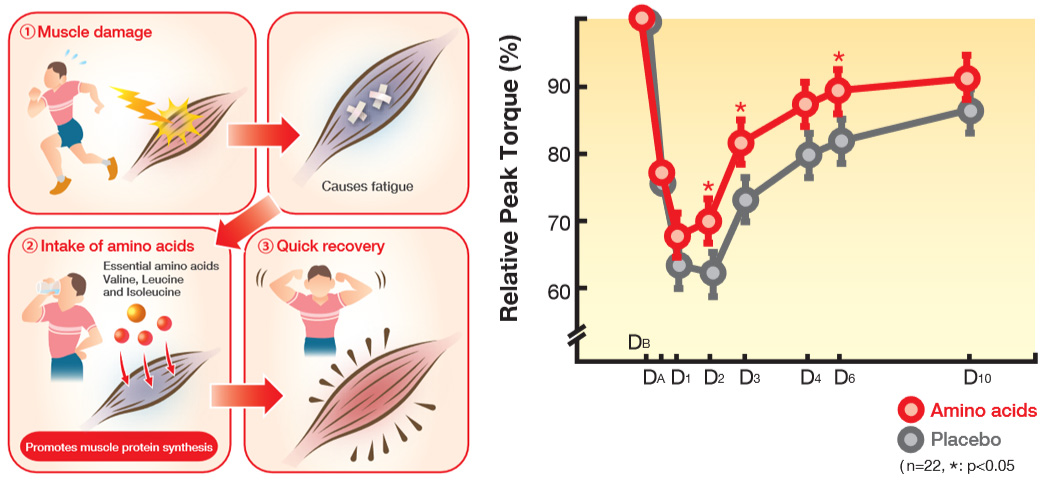Amino Science and the Well-balanced Meal— the Hero Behind Japanese Athletes
Knowing that athletes perform better with the proper intake of amino acids and a balanced diet, Ajinomoto Co., Inc. (“Ajinomoto Co.”) has begun applying its well-established research and development expertise to athletics under the banner “Amino Science for Sports.” Since 2003, we have been conducting the Victory Project®, supporting the Japanese national team and sports organization, as well as individual athletes with amino acids and consultation on nutritionally-balanced food.
The Secret of Successful Athletes
The moment an athlete breaks a world record brands itself on the memory. And it seems that such moments are happening more and more frequently. Consider, for example, that the man’s marathon world record seems to be bettered year by year. The world record time now is inching closer to 2 hours—a milestone similar to the 4-minute mile—which people thought would be impossible just 20 years ago.
Why are world records falling so quickly? We believe that one of the major factors might be hidden in what athletes eat. People have always connected food and sport. One noted dietitian says that what you eat before, during, and after the game is just as important to winning as what you do during the game itself1. Examples of athletes to subscribe to this belief are everywhere. American swimmer Michael Phelps, who has won 23 Olympic gold medals, is known to eat good sources of protein such as fish and chicken for best results in the pool2.
Scientists have long been researching nutritional science as it relates to sport, and Ajinomoto Co., Inc. (“Ajinomoto Co.”) has a long history of studying science and food technology, with a focus on amino acids. After confirming the positive relationship between sports performance and the consumption of well-balanced diets including amino acids, Ajinomoto Co. began rigorous research and development in this area.
It seems Ajinomoto Co.’s support for the Japanese national teams is helping Japanese athletes win more medals than ever before. Japan won 13 medals in the PyeongChang Winter Olympics in 2018—more than the total of 8 in the Sochi Winter Olympics in 2014. Likewise, the Japanese team won 25 medals at the 2008 Beijing Olympics, 38 in London in 2012, and then a remarkable 41 in Rio de Janeiro in 2016

The Power of Amino Acids Behind the Scenes
Intense training and exercise exhausts available amino acids in muscle tissue, causing fatigue and damaging muscle tissue5. The presence of amino acids in the blood is essential for athletes, because they improve muscle strength and physical endurance.
Twenty percent of the human body consists of proteins, which are composed of different combinations of twenty different kinds of amino acids. Among these, Valine, Leucine and Isoleucine are known as the branched-chain amino acids (BCAAs). The advantage of consuming BCAAs is that they can be absorbed in just thirty minutes, in comparison to the four hours required to digest proteins, which are more complicated structurally. In other words, intake of BCAAs is important to maintain a healthy body condition and to recover quickly from fatigue5. As essential amino acids cannot be synthesized in the human body, they must be supplied via the athlete’s diet.
Read More